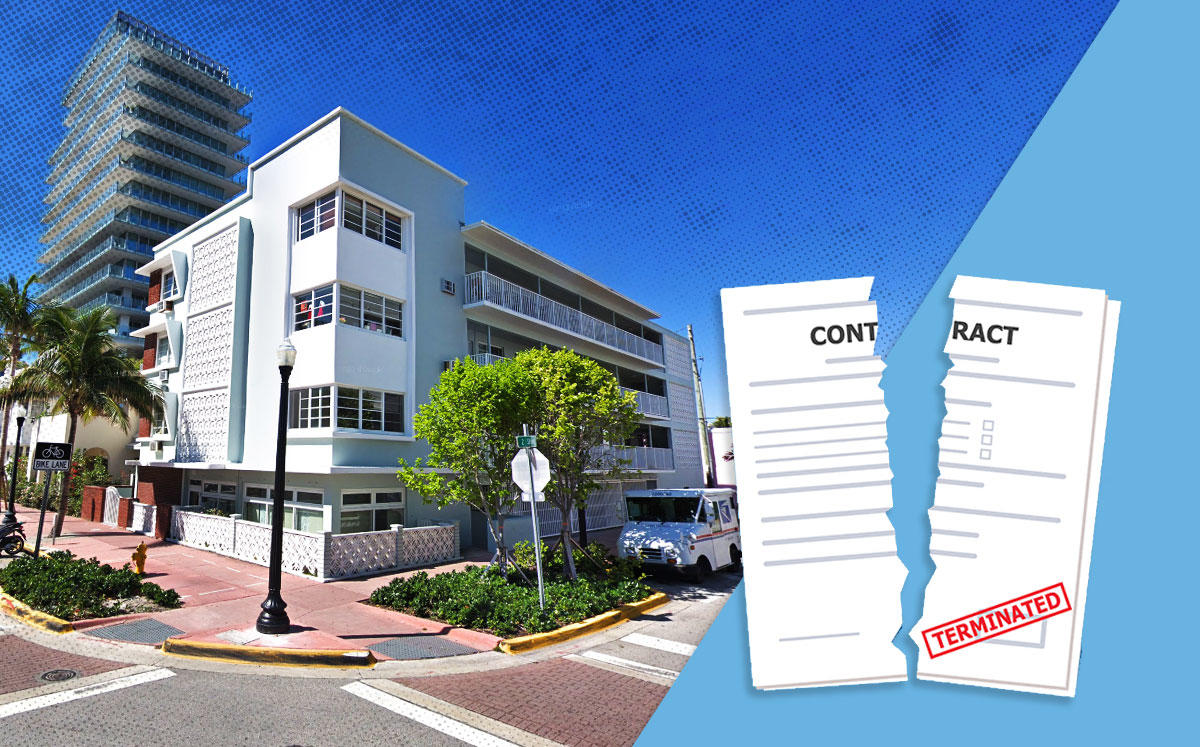In Florida, you can’t be evicted for failing to pay rent, but can you be ejected?
The owner of a South Beach co-op unit is suing his tenant for alleged nonpayment, filing the claim as an “ejectment” rather than an eviction. Because the landlord contends he had previously canceled the rental agreement with his tenant, an “ejectment” would allow him to get rid of the resident.
Joshua Goldberg, who owns the unit at 158 Ocean Drive, has filed the case against Hector D. Alvarez and his father, Hector D. Alvarez Sr., citing breach of contract. He is also suing for unlawful detainer, because the tenant did not leave the unit.
Alvarez Sr., who is 91, is the tenant.
His son, who signed the lease, owns and lives in the co-op unit next door. The building is a modest, three-story complex built in the early 1960s.
The son is also a landlord himself, with nearly two-dozen units in Miami, he said. More than a third of his tenants aren’t paying rent because of the economic impact from the coronavirus. He said he has no interest in evicting them.
In April, Gov. Ron DeSantis put a freeze on evictions for renters and homeowners who can’t make their payments because of the pandemic. The statewide executive order, which has been extended until July 1, does not provide financial relief. Still, hundreds of eviction cases have been filed throughout the temporary ban, said Alvarez’s attorney, David Winker, giving those landlords a leg up once the freeze is lifted.
Goldberg’s lawyer, meanwhile, maintains his client is seeking a judgment for removal “at an appropriate time,” but stressed they are not pushing the elderly man out immediately. The attorney, Michael Perse of Kluger Kaplan, said Goldberg is in the process of selling the unit, a deal that could fall apart because of the renter’s nonpayment issues and refusal to leave.
“The buyer is not going to close under these circumstances…We haven’t sued for that yet,” Perse said.
But Winker says the lawsuit is simply an effort to work another angle because the state’s eviction moratorium is still being enforced. “This is attorneys fighting the system, trying to get around what’s happened,” he said.
Alvarez’s one-year lease ended in December. It was converted to a month-to-month tenancy that started on Jan. 1. By the end of that month, Goldberg provided notice that monthly rent would increase beginning in March to $1,500, from $1,350.
Alvarez kept paying the original rent, he said, because he wasn’t aware of the increase. Goldberg never cashed those checks and canceled the lease. He then gave Alvarez 30 days’ notice for his father to vacate.
Alvarez claims he’s owed nearly $1,300 in repairs he paid for the unit, in addition to the security deposit and final month’s rent that the landlord holds. Perse said the landlord hasn’t seen any receipts to back up the claim about repairs.
Alvarez’s lawyer filed an emergency motion to quash the summons and dismiss the lawsuit, saying the suit is “in bad faith and in direct contravention” of the eviction moratorium. He cited a May 18 request from the Eleventh Judicial Circuit to hold off on issuing summonses on residential evictions for nonpayment during the statewide freeze.
But because the landlord canceled Alvarez’s lease, Perse said the eviction moratorium does not apply in this case, and filed a motion opposing Alvarez’s emergency request.
“They hold the keys to their own prison,” Perse said. “At the end of the day, they will have to leave.”
